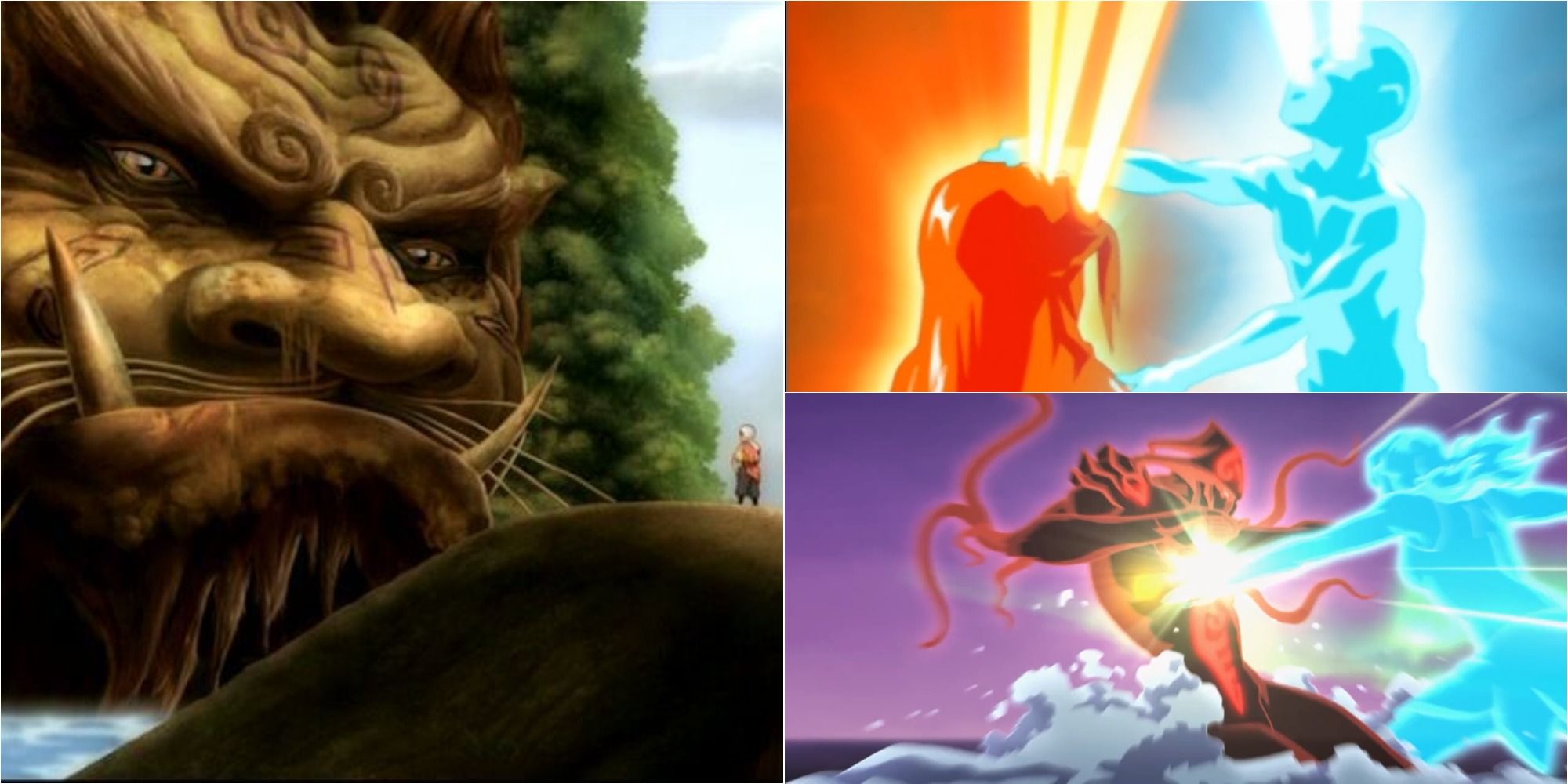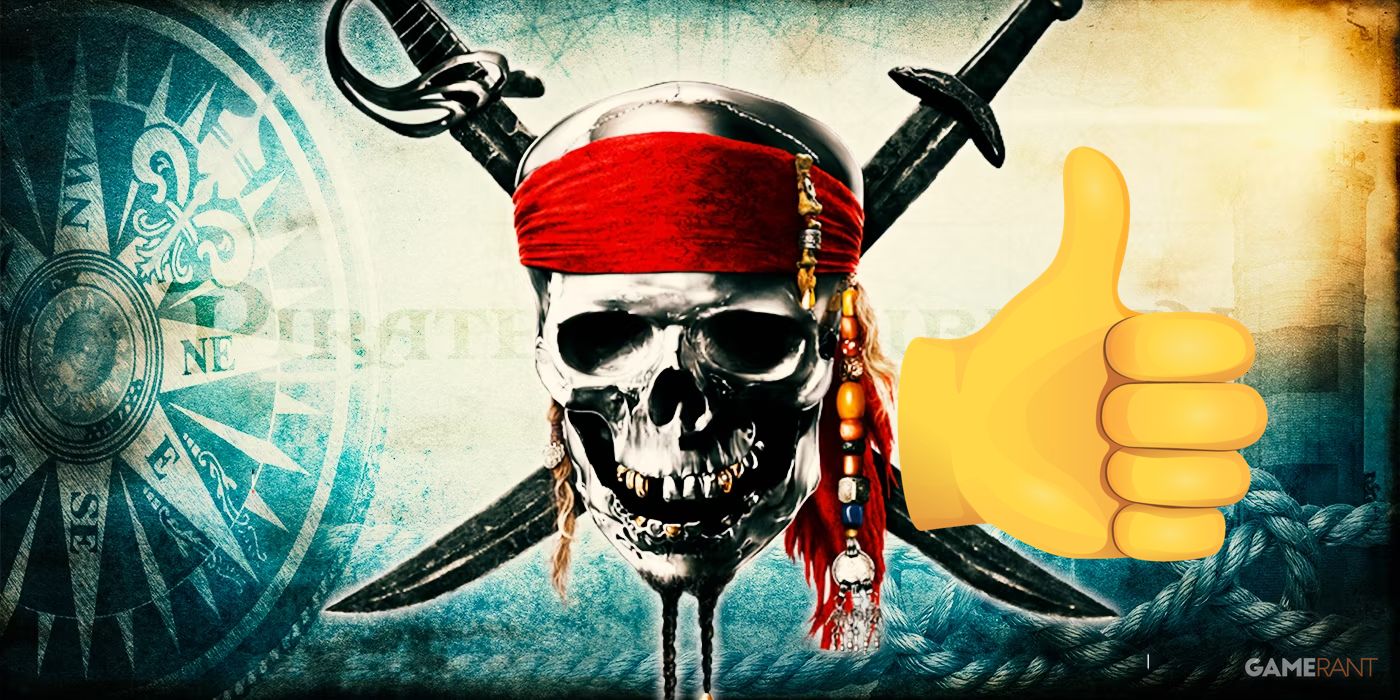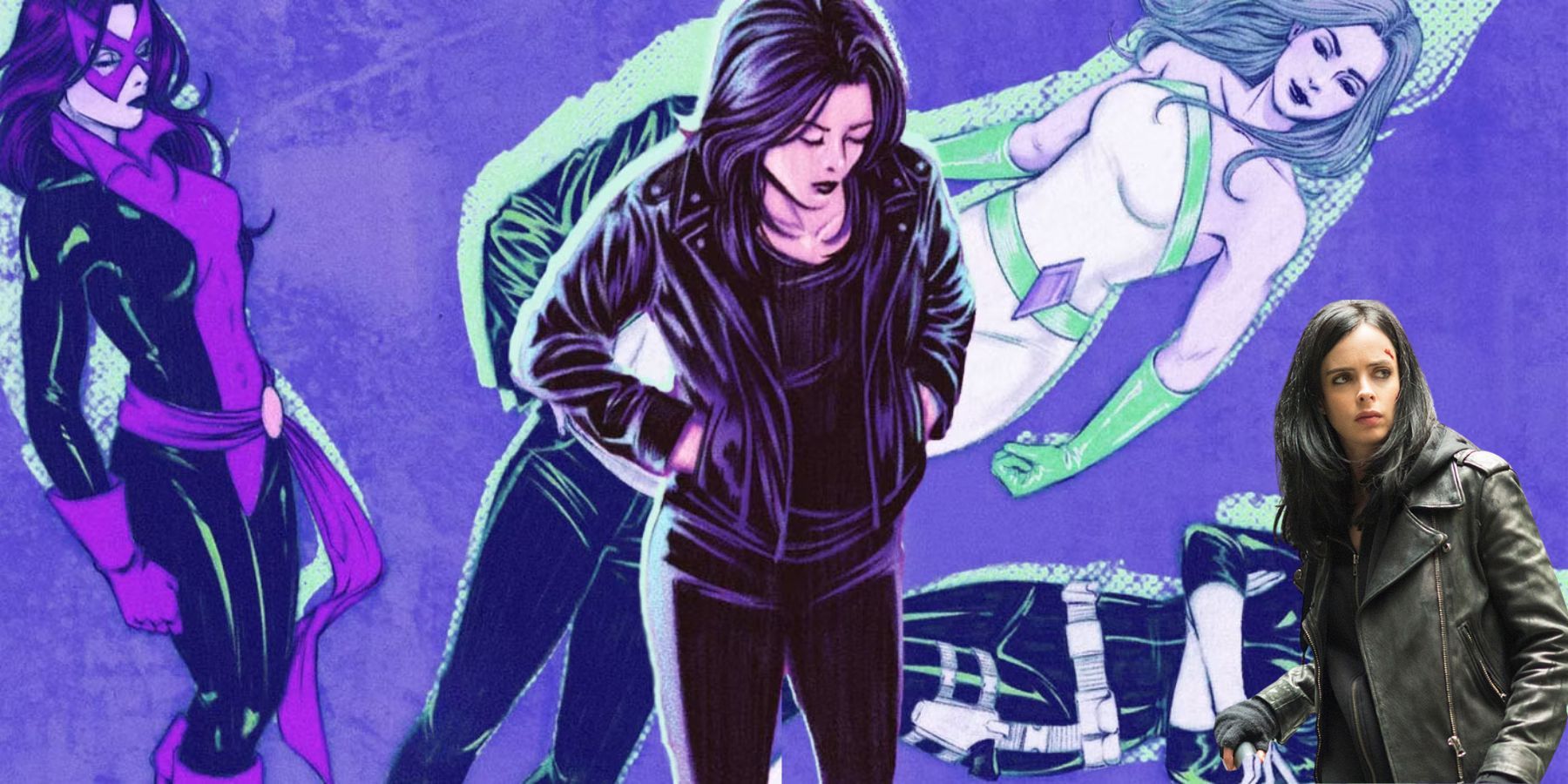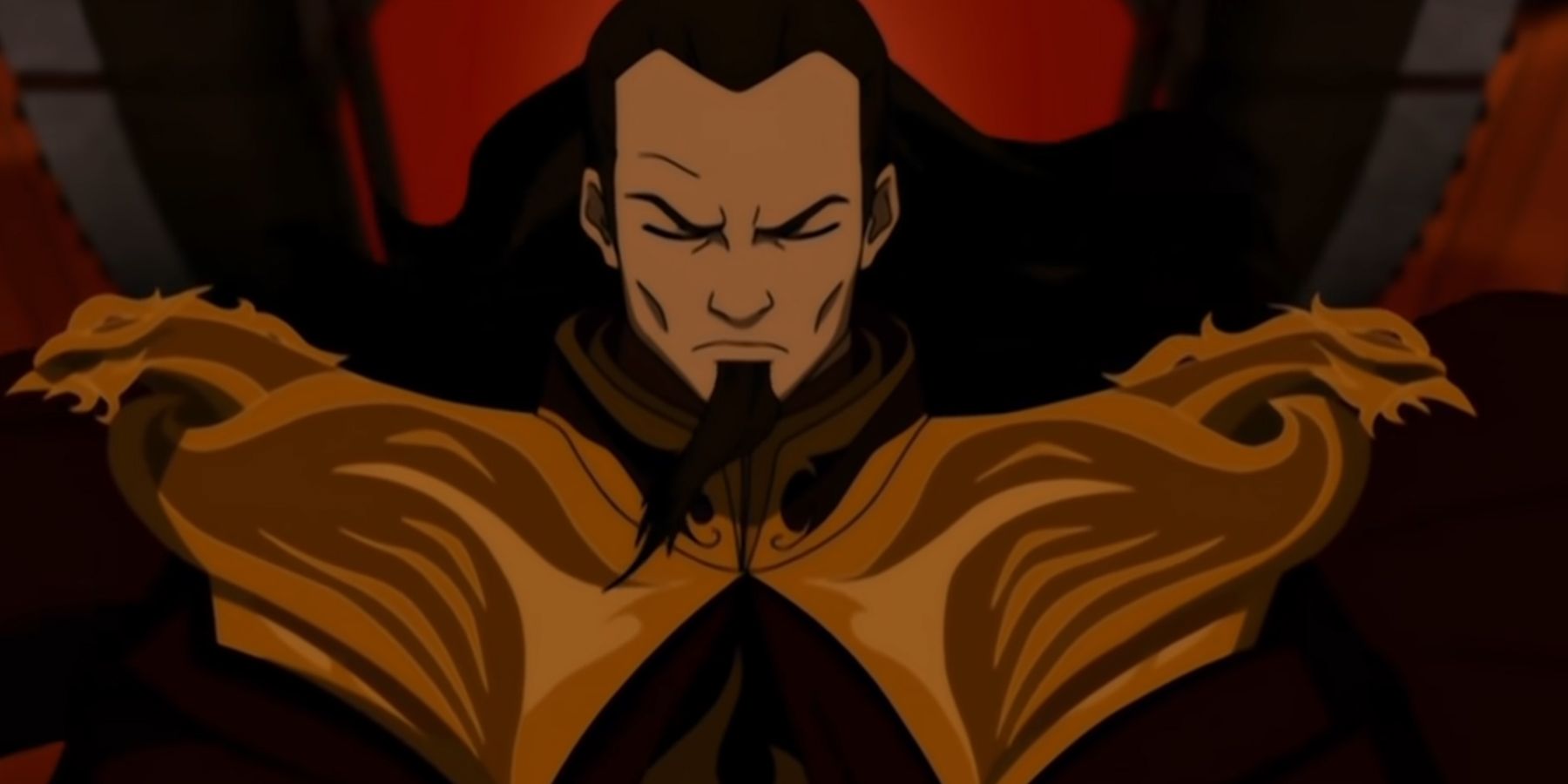Highlights
- Fire Lord Ozai's performance by Mark Hamill is a standout, showcasing his ability to play a terrifying villain with nuanced voice work.
- Ozai is well-established as a despicable presence, with his abuse, manipulation, and genocidal desires displaying his complete lack of morality.
- However, Ozai's lack of personal interaction with Aang and the focus on Aang's internal conflict rather than defeating him deflates his threat as an antagonist. The final battle feels somewhat hollow.
Avatar: The Last Airbender is considered one of the greatest and most beloved shows ever made, and a huge part of this appeal is the cast of characters. Avatar boasts a dynamic cast, with each member having a strong personality, well-defined character arc, and active relationships with other characters. Different characters are each given proper levels of focus as well, with Zuko's famous redemption not overshadowing Katara's quest to let go of her trauma or Sokka's journey from misogynist to warrior. Avatar's characters are mostly well-developed individually and in relation to each other, making them more engaging to watch and feel like realistic people.
It therefore stands out that the overarching antagonist of Avatar, the indomitable Fire Lord Ozai, is somewhat frequently considered to be an underwhelming antagonist and one of the weaker parts of the show as a whole. He's certainly a mixed bag, however, as he has nearly as many strong points as he does weak ones. So where does he stand as a whole?

Avatar: 8 Things To Know About Energybending
Energybending is the most powerful bending technique in the Avatar franchise. Here's how it works.
The Good of Ozai
Fire Lord Ozai is certainly not without his strengths as a character. His most obvious success is the performance that makes him come alive. In spite of kicking off his career playing Luke Skywalker, a beacon of hope and goodness, Mark Hamill has perhaps become better known for his terrifying performances as animated villains. He's done an incredible job playing DC's Joker and Muska in the English dub of Castle in the Sky, and he gives another phenomenal performance as Ozai. While he doesn't get a ton of screen time compared to other major characters, Hamill goes above and beyond with the lines he has to work with.
His voice work as Ozai is nuanced, being calm and smooth enough to fit a calculating politician, the voice of someone who never truly feels as though they're not in charge of any given situation. Beneath that facade, however, lies the unmistakable hint of bloodlust. It's the voice of a man who would love to rip apart anyone who even hints that they might get in his way and is barely restraining himself from doing so. Hamill's performance reaches its peak during the final battle, when the curtain drops fully and the bloodthirsty tyrant comes all the way out. Ozai gleefully roars about the death of the Air Nomads and threatens that Aang will soon be joining them. It's terrifying in the best way.
While Ozai might not be perfectly set up to be the big bad of the series, he is very well established as being a despicable presence, someone viewers can relish in longing for him to get what's coming to him. Ozai treats everyone around him abysmally. He manipulates his dying father to take the throne away from his brother and forces Ursa to marry him, going on to abuse and exile her. He permanently scars and banishes Zuko, giving him the impossible task of hunting down the Avatar, all just for speaking out of turn during a war meeting. During said meeting, Ozai was agreeing with a proposal to knowingly sacrifice Fire Nation troops in order to gain an advantage. Even Azula, who in theory has Ozai's favor, is tortured and twisted by him to become his mirror. Azula breaks down mentally as a result of his abuse, not knowing who she is if not his successor and living in fear of losing the lie that she believes is his love. Combine all of this with the practiced ease with which Ozai deals out genocidal orders and his unflinching desire to conquer all nations, and you've got a character whose complete lack of morality is very well fleshed out.
The Bad of Ozai
A problem with Ozai, though, is that while his wrongdoings are very apparent, he hasn't had any interaction with Aang specifically until the final confrontation rolls around. This isn't a problem inherently; villains don't necessarily need to have personal conflict with the protagonist. The ideological difference between the two or the simple need to save lives by taking the antagonist out can be more than enough to make for an interesting confrontation. The issue here comes from the decision to make Aang's final challenge not the act of defeating the Fire Lord, but grappling with whether or not he can bring himself to kill him.
In the final episode of Avatar, Aang struggles to balance the pacifist philosophy the monks gave him with the looming understanding that Ozai must die for the sake of world peace. It's not an entirely out of character conflict for Aang to go through, but it left many fans frustrated, feeling that it was a bit of an artificial and unnecessary way to raise tension. The decision to have Aang far more worried about whether he should kill Ozai rather than whether he can even defeat him in the first place deflates a lot of the threat the Fire Lord carries. Aang is so confident he will defeat his opponent that he's skipped right to questioning what he should do in victory. If the protagonist isn't invested in the outcome of the biggest fight of the series, why should the audience be?
Unfortunately, this decision hurts the fight practically as well. The final battle between Aang and Ozai is beautifully animated, tightly choreographed, and as mentioned earlier, features an incredibly passionate performance from Mark Hamill. The problem with the battle is that Ozai simply does not feel threatening. Ozai is boosted by Sozin's Comet, but as he isn't the first firebender seen under these conditions and he doesn't showcase any fully unique abilities, he doesn't stand out as very unique in the same was as someone like Azula does. Aang and Ozai are on relatively equal ground at first, but this is only because Aang is playing defense, still debating if he should take Ozai's life and locked out of the Avatar State. He regains access to his most powerful form when the Fire Lord throws him against a rock, realigning his chakras. While this isn't really Ozai's fault, it feels somewhat lazy to have Aang regain access to the Avatar State through luck like this instead of through spiritual reawakening. And once Aang is in the Avatar State, he absolutely dominates Ozai, ending the battle with incredible ease. This on its own isn't a bad thing, as it demonstrates how truly foolish Ozai was to think that he could topple such an incredible power, but it feels hollow when Ozai never truly felt like a real threat to Aang.
Ozai's role in a disappointing finish seems to be his most common complaint among fans, but he suffers from a simpler, more fundamental problem as well: the series doesn't delve into anything about him other than his cruelty. Unlike most characters in the show, basically nothing about his history is shown. There's no indication as to what his background was like or why the conquest of the world means anything to him personally. As a character, his actions and relationships with characters like Azula and Zuko give him depth. As an antagonist, though, he ends up as mostly an unambiguously evil villain who isn't very hard to stop when all's said and done.
It could be argued that Ozai is not the real villain of Avatar: The Last Airbender. The real antagonist might be Sozin, Ozai's grandfather and the Fire Lord who started the Hundred Year War. Alternatively, the villain could also be considered to be the Fire Nation as a whole, or more broadly imperialism as a concept. In either case, Ozai feeling a bit underdeveloped could be explained as him merely being a part of the Fire Nation war machine; Ozai himself doesn't matter, for he'll simply be replaced by a descendant unless the war itself is halted. This explanation can help matters a bit, but it still doesn't make Ozai himself feel like more of a memorable threat. As things stand, it seems reasonable to say that Ozai was a solid, well written character, but maybe not the final choice for the show's final boss.



.jpg)
-3.jpg)
